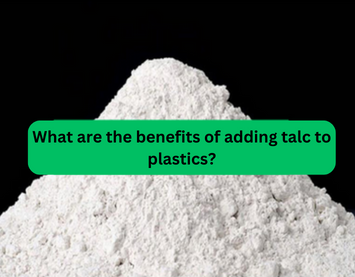- ISO 9001:2015 Certified Company
- +91-9672985402
- info@vasundharamicron.com
What are the benefits of adding talc to plastics?

How do I store soapstone powder properly?
October 9, 2023
How is Talc powder added to Filler Masterbatch?
October 23, 2023Soapstone powder, while being used in varied industries for various purposes, it’s necessary to store it appropriately. If you are using this powder, whether it’s for paints, plastics, cosmetics or anything, proper storage of soapstone powder will not only add to its shelf life, but also to its overall superior quality. In this blog post we will discuss soapstone powder storage and as responsible Soapstone powder manufacturers we will get you informed about some best practices for keeping it effective for your intended applications.
Talc in Plastics Has Many Faces
Enhanced Stiffness and Strength: A key advantage of adding talc to plastics is a significant increase in stiffness and hardness. A talc serves as a filler to strengthen the plastic materials. This enables manufacturers to produce lightweight products while maintaining strength, making it ideal for applications that require both strength and weight savings.
Improved Dimensional Stability: Dimensional stability is critical in many plastic applications, as variations in shape and size can result in product failures and defects. Because talc is able to address these issues, they will be much less likely to come into play during the manufacturing process when it is used. This results in plastic products that retain its original form and size and are held to rigorous quality standards.
Enhanced Heat Resistance: Plastic grade talc enhances heat resistance of the plastic materials. This can be particularly valuable in applications where high temperature exposure is foreseen such as automotive, electrical enclosures, and consumer electronics. Adding talc can help plastics tolerate higher temperatures without warping or losing their mechanical properties.
Cost Savings: Always, economic concerns are the first when it comes to product development. Talc filler allows manufacturers to decrease the amount of plastic resin used in their formulations. Substituting talc for plastic resin is less expensive than other alternatives, providing substantial savings in material costs. We provide high-quality plastic-grade talc, which enables manufacturers to produce cost-effectively without any performance compromise.
Improved Processing: The unique properties of talc are very beneficial in processing plastics. The particles reduce friction between plastic molecules, making the material easier to process. This can lead to decreased cycle times during manufacturing, and hence an enhancement in productivity along with less energy consumption.
Reduced Environmental Impact: Sustainability, in the plastics sector, is on the rise. Talc allows for a more sustainable plastic production process by reducing the amount of plastic resin required. Furthermore, talc is also a natural mineral and we are committed to ethical sourcing and sustainable practices to minimize its impact on the environment.
Matte Finish and Opacity: Talc can be included in cosmetic packaging and consumer products to obtain a matte finish on plastic surfaces in some instances. This matte appearance could improve the appearance of the product aesthetically and also provide a more premium look and feel. Talc also increases the opacity of plastics useful for application requiring UV block-out or light diffusion.
Conclusion
In this plastic-fluctuating world, it’s clear there would be a benefit in plastics to have talc within. Talc offers several benefits to plastic formulations, including higher stiffness and strength, greater dimensional stability, higher heat resistance, lower costs, and reduced environmental impact.
For manufacturers looking for these advantages, Vasundhara Micron is one amongst the primary suppliers of best quality plastic-grade talc. Our commitment to quality, sustainability, and customer satisfaction is what sets us apart from the competition. Our plastic-grade talc serves as an igniter for innovation, providing manufacturers the ability to create products with unmatched strength and durability.



